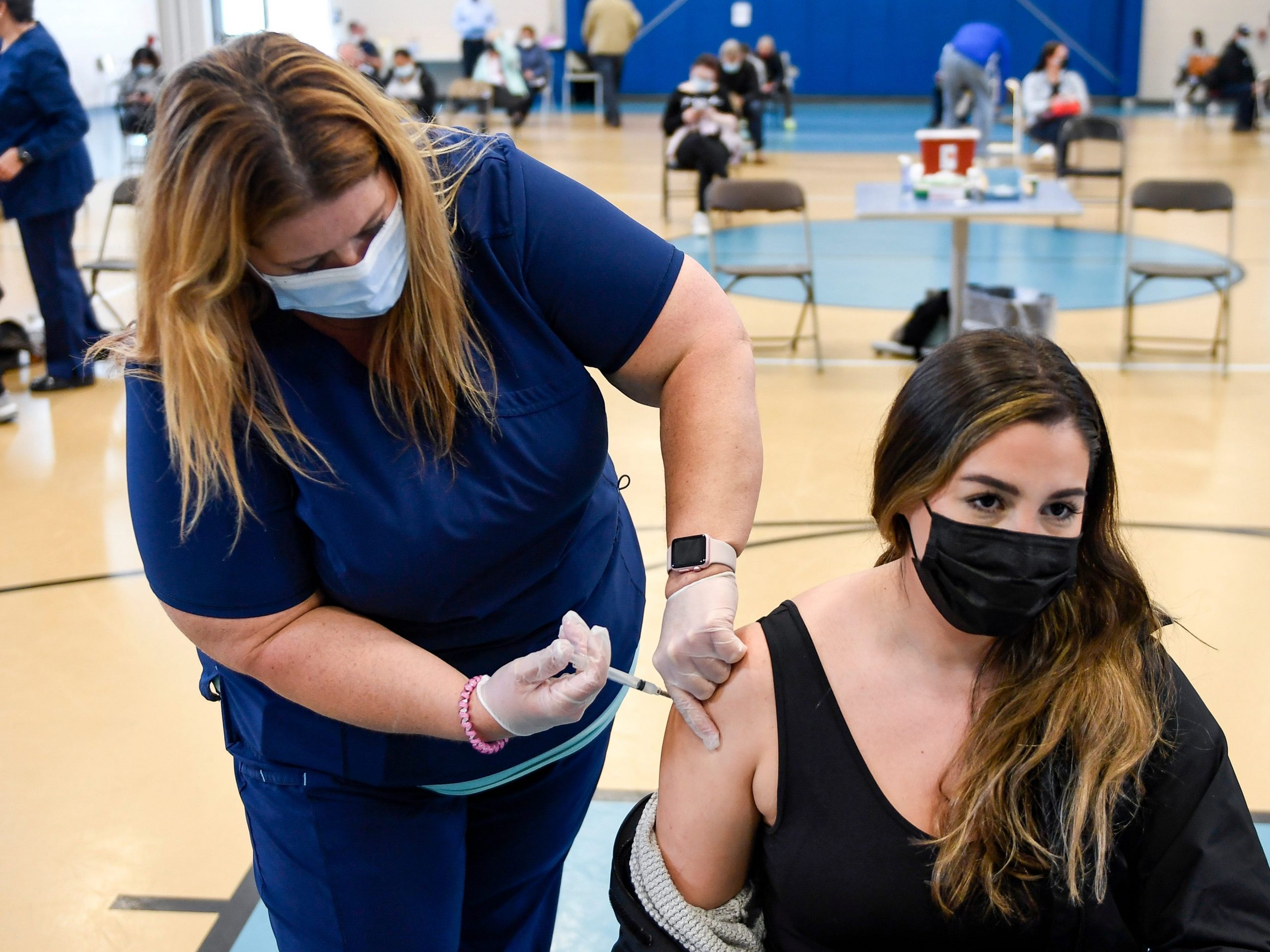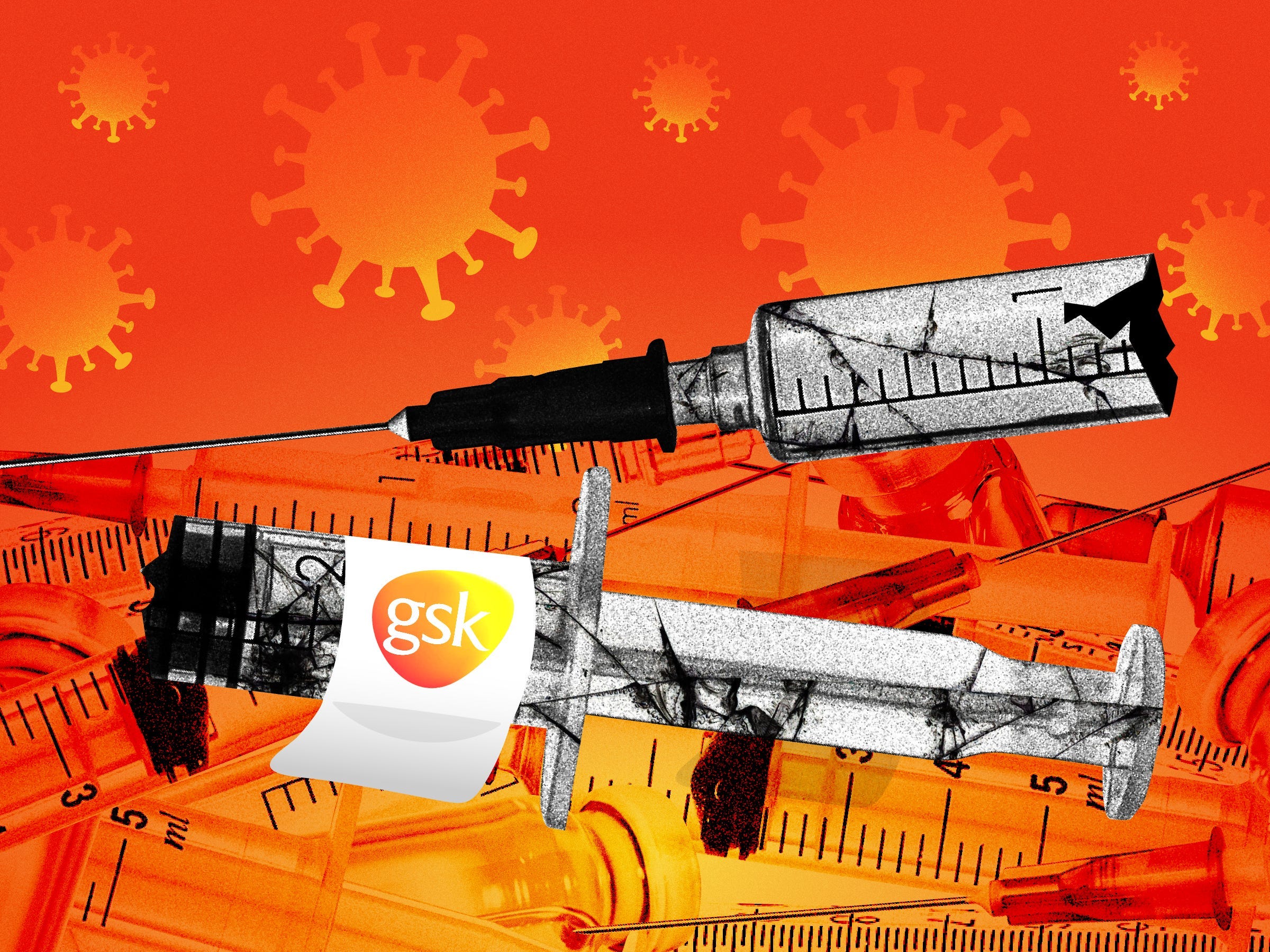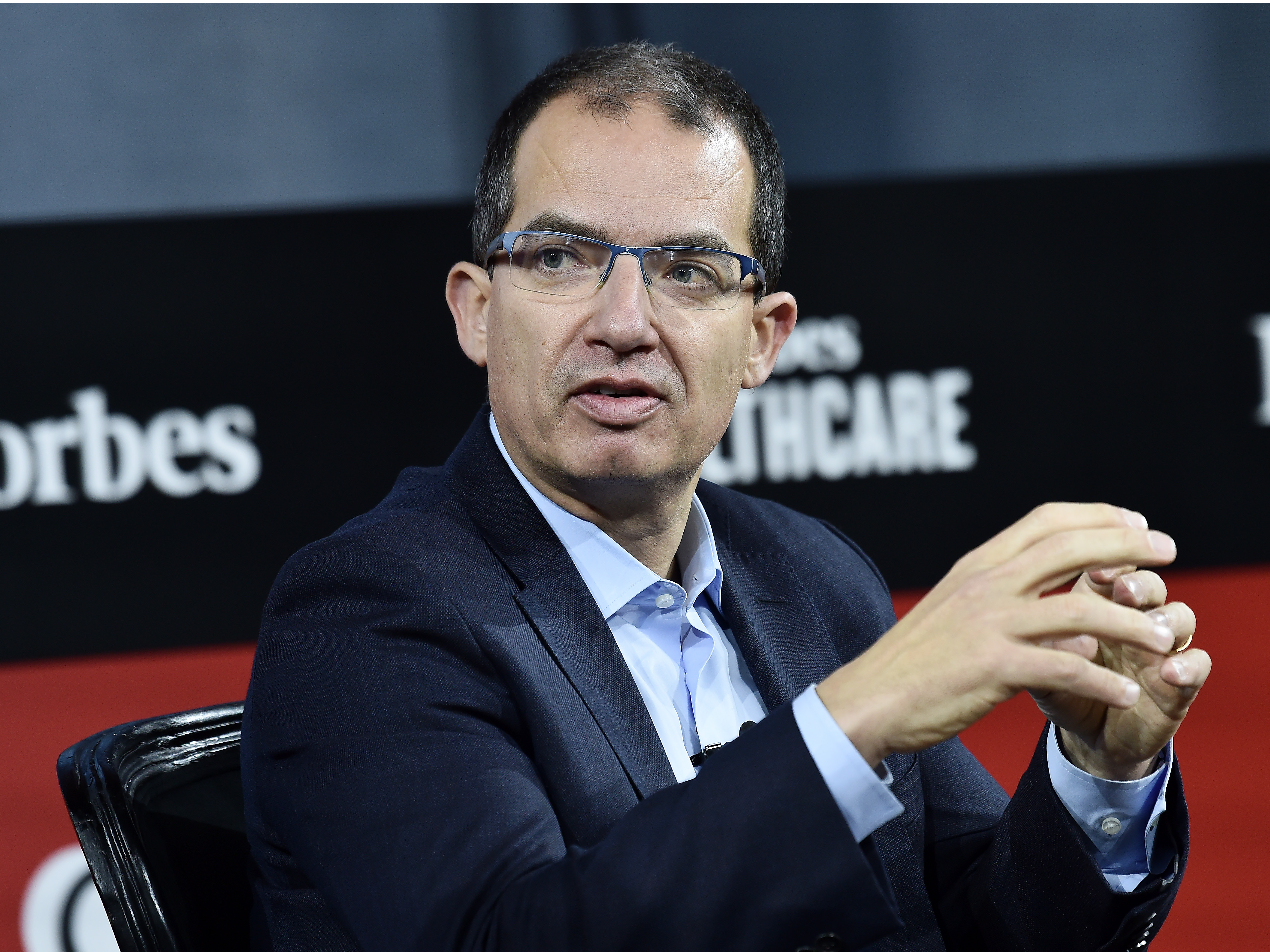Hello,
Welcome to Insider Healthcare. I'm Lydia Ramsey Pflanzer, and wow, what a week in vaccine news:
- US officials recommended a pause on J&J's shots after reports of rare blood clots;
- We took a look at GlaxoSmithKline's future in vaccines after its COVID-19 stumbles;
- And vaccine frontrunners Moderna and Pfizer shared what's ahead as mRNA vaccines take off.
If you're new to this newsletter, sign up here. Tips, comments? Email me at [email protected] or tweet @lydiaramsey125. Now, let's get to it…

Ben Hasty/MediaNews Group/Reading Eagle/Getty Images
Putting J&J on pause
On Tuesday, the CDC and FDA recommended pausing the rollout of Johnson & Johnson's coronavirus vaccine, citing concerns over rare blood clots after six cases of the clots were reported among 6.8 million people who got doses.
A similar issue has popped up in the rollout of AstraZeneca's vaccine in Europe. That might not be a coincidence, since both use similar vaccine technology.
For those who've received a J&J shot - especially in the last week or two - it's important to keep an eye out for symptoms of blood clots, which can include leg pain, severe headaches, stomach pain, or shortness of breath.
The type of rare blood clot seen in people who've received J&J's vaccine is different from blood clots typically seen in people who've taken birth control pills.
We charted out the relative risks of getting blood clots here>>
For now, the rollout of J&J's vaccine carries on while an independent CDC committee gathers more information after meeting on Wednesday.
We spoke to experts this week about what to make of the pause. They shared concerns about the impact on public sentiment toward getting vaccinated.
Learn more>>
Doctors say fears of blood clots from J&J's shot are overdone and could delay the push to end the pandemic

GSK's uncertain future
Reporter Andrew Dunn also took a closer look at what's happening at vaccine-giant GlaxoSmithKline.
Historically a leader in vaccines, GSK didn't manage to develop a COVID-19 immunization.
It's now facing an exodus of top vaccine scientists, Andrew reports.
That now includes the head of vaccine research, who's leaving to join the biotech startup Viome.
Also in the mix for GSK: Elliot Management, known for its activist campaigns, took a big stake in the pharma giant, the Financial Times reported on Thursday.
Get the full scoop>>
GlaxoSmithKline stumbled with COVID-19 shots. Now it's facing an exodus of US talent and an uncertain future as the world's vaccine leader.

Moderna CEO, Stephane Bancel attends 2019 Forbes Healthcare Summit at the Jazz at Lincoln Center on December 05, 2019 in New York City.
Steven Ferdman/Getty Images

Steven Ferdman/Getty Images
Moderna's plan to disrupt vaccines
Meanwhile, vaccinations have continued to roll out using Pfizer and Moderna's mRNA vaccines. So far, there have been no red flags about clots linked to Pfizer and Moderna's shots after more than 185 million doses.
And so far, protection is lasting. New data released Tuesday showed that Moderna's vaccine remains highly protective 6 months in.
This week, however, Moderna and Pfizer both talked about the likelihood of booster vaccines that'll make coronavirus shots a yearly routine.
- Pfizer's CEO said people will likely need a booster shot of Pfizer's vaccine within 12 months.
- And Moderna's aiming to have a booster shot for COVID-19 ready by the end of the year.
Andrew talked to Moderna's CEO Stephane Bancel this week. Bancel shared what else the biotech's planning to do with vaccines.
That could include a combination vaccine that protects against flu, COVID-19, and RSV, a common respiratory illness.
It might also include a vaccine for HIV.
Here's what's ahead>>
Moderna is betting its mRNA technology will lead to a new wave of vaccines for diseases like HIV. Here are the top 5 it's working on beyond COVID-19.

Two technicians set up a patient for an MRI scan.
BSIP/Universal Images Group/ Getty Images

BSIP/Universal Images Group/ Getty Images
Falling short of expectations
Elsewhere in healthcare news, we spent some time this week highlighting disappointments.
While the treatment, developed by Amylyx, will be up for approval in Canada and Europe this year, the FDA has asked for another trial, delaying when the treatment might be available in the US.
Then - Shelby Livingston tried to shop around for an MRI under a new rule that should require hospitals to share the prices they charge.
Four months since the rule went into effect, she still had a hard time getting any answers.
See what it took>>
A new rule was supposed to force hospitals to reveal their secret prices. But after I spent hours shopping around for an MRI, I learned that not much has changed.
I'll leave you with some reporting we did this week that plots out the future of healthcare:
- On Monday, Microsoft said it's buying Nuance Communications to bulk up its presence in healthcare. Essentially,
Microsoft is spending $16 billion to beat Google and Amazon to an underrated part of the healthcare industry. - And Biden's infrastructure plan earmarks $400 billion in home-based care for aging Americans. That could shake up the lucrative home care industry.
- Finally, investors are betting big on the future of dental services, a part of healthcare hit particularly hard by the pandemic. New York dental startup Tend, for instance, had to close for 3 months and lost 15% of its business last year. It just got $125 million to fuel its comeback.
- Lydia